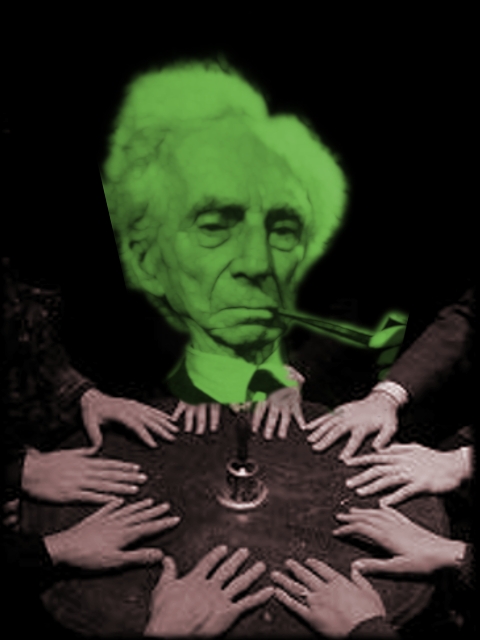In my first post I argued that one is difficult to define. In my second post I exhibited some examples of how “one” is used in seemingly contradictory ways.
What is 1? It is a symbol that represents the number one. Which is not very helpful since I’m not certain I have that firm a grasp on what the number one is anymore. Perhaps I should request assistance from a Philosopher of Mathematics, someone like Bertrand Russell. Now the trouble is that he is dead, and if you know anything about his philosophy, then you know that contacting him through a seance is rather unlikely. Primarily because ghosts and such don’t exist, and secondly because Russell spent a great deal of his life convincing people that ghosts and such don’t exist.
The good news is that we don’t need to have a seance, as Russell was good enough to put his ideas into a book. Actually a lot of books, but I’m going to quote from The Principles of Mathematics because it was in Leddy Library, and is has a chapter titled Definition of Cardinal Numbers.
Here is what he had to say in 1903:
It has been common in the past, among those who regarded numbers as definable, to make an exception as regards the number 1, and to define the remainder by its means. Thus 2 was 1 + 1, 3 was 2 + 1, and so on. This method was only applicable to finite numbers, and made a tiresome difference between 1 and other numbers; moreover the meaning of + was commonly not explained.
He goes on to define one as an abstract notion involving an equivalence relation on classes. If you don’t know what that means that’s fine since we’re only at the beginning of mathematics, and we’ll get to sets, and equivalence relations by the time we are done. The point is that until Russell came along it was traditional to just assume that people knew what you meant when you said “one.” Russell demanded a deeper adherence to rigour, but what that lead to was defining “one,” the concept everyone knows, by a bunch of concepts that are generally only explored by logicians and mathematicians.
Activity: Define one without relying on circularity. What is the best definition you can come up with? What ideas are you assuming are already known?

Hmmm. One is definitely more that nothing. However, one cannot be shared with another without altering its wholeness.
LikeLike
Sharing is an interesting concept from a mathematical perspective. It’s true that to share an apple with you I have to cut the apple. On the other hand, you and I share one last name, though I don’t think the Robson name has lost anything by us sharing.
This is a good example of how logic is different from ordinary language.
LikeLike